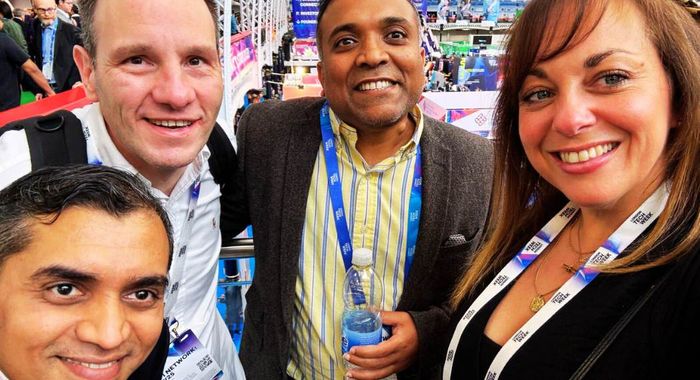I’m Gavin, the Chief Design Officer at Scrumconnect. I recently shared on LinkedIn that over the last year, it became clear that I was, and have always been, autistic. I specifically said that, for the first time, I really struggled with knowing if I should share it or not.
I’ve never been shy in my support for mental health awareness and sharing stories from my life to support others.
This time was a little different. I didn’t know whether I should or shouldn’t, why I would, or even if I could share it. I deliberated on it for months but finally published it just a couple of weeks ago. There was a little bit of weight lifted.
It’s Mental Health Awareness Week, so I wanted to dig in a little deeper as to how I realised and the effect it had on me.
I have always felt that life was a bit of a struggle. I felt it was more challenging than it needed to be, and I’ve always had to put 10 times more effort into things than others to get to the same outcome.
A few years ago, my eldest daughter went through an autism diagnosis. When I was answering questions about her, it dawned on me that it was like looking in a mirror. The things that I was saying looked and felt like me when I was younger. I laughed a few times before the professor who was asking the questions leaned over to say, “It’s quite possible that you’re autistic, too.”
Life got busy again, and I didn’t pursue looking into it further, but early last year, for whatever reason, more and more material about late diagnosis and adult autism started showing up in my feeds. The more that caught my eye, the more it started to dawn on me.
The feelings that I’d experienced and the struggles I’d had were all clearly identifiable.
Then I started to think about ‘masking’, and what if I didn’t ‘mask’ anymore? What if taking the mask off helped? After discussing it with my family, I gave myself permission to just be me.
Within days, I felt like I’d made the worst decision possible. I felt anxious, petrified, depressed, and lonely. It made me feel like the ‘7-year-old Gavin’, the lost child who couldn’t figure out the world around him. It was polarising to feel like a 7-year-old as a 40-year-old.
I didn’t know what I was supposed to do, how I was supposed to feel, and, importantly, at that moment, I had absolutely no idea who I was, nor did I think anyone else could understand either.
Personal Reflection and Processing
The more I reflected on my life as a whole and processed all the realisations, the easier things became. The anxiety, depression, and loneliness lifted.
Talking openly about certain autistic tendencies that I have has helped.
Just letting people know that I’m autistic stops me from trying to mask.
Identifying when my backpack is getting a little too full and taking steps to make it lighter stops me from reaching burnout or ‘meltdown’.
Professional Life
For years, I’ve held leadership roles, and some might think that sharing this type of information could be detrimental, but I’d say the opposite is true.
I’ve been at Scrumconnect for a little over two months now and have openly communicated and shared with the team about my autism. It’s been great being in an environment where it’s accepted and supported to just ‘be me’ and ultimately it’s allowed me to be comfortable.
If we as leaders do not share, then we’re doing a disservice to our teams and organisations. We’re not immune just because of our role.
Closing Thoughts
The realisation was a challenge, the unmasking was tough, but the reflection, processing, and understanding of who I am has enabled me to ‘be me’ for one of the first times in my life both personally and professionally.
It’s never too late to figure this stuff out, and know there are plenty of people out there who are going through this too.
Reach out for help, guidance, and advice.









